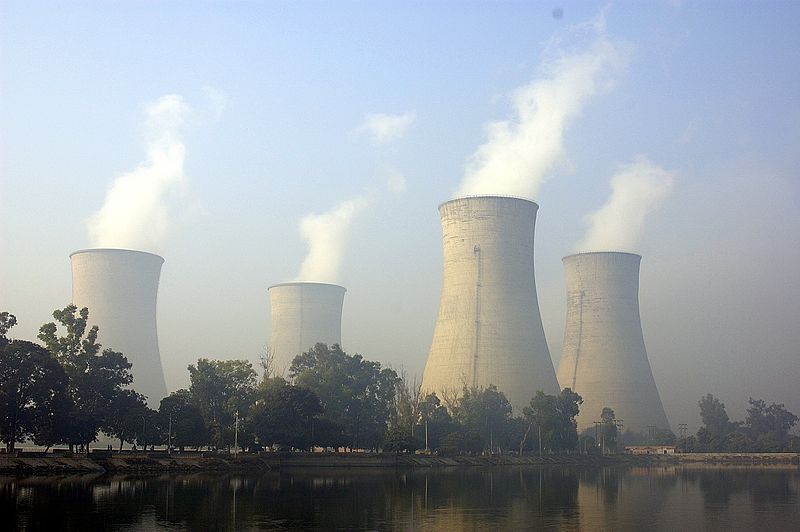Air pollution in Delhi can be reduced by not operating non-compliant power plants during winter: Study
An analysis shows that coal-based power plants in the 300 km radius of Delhi-NCR generated negligible or no electricity from November 14 to 23 in 2020 indicating that the region could meet any such or lower demands without operating coal-based power plants in the 300 km radius. Details here.


The study advised that power plants with SO2 controls should be operated at maximum capacity to reduce the need for power plants without the facilities to control SO2 emissions.
In the wake of high levels of air pollution in New Delhi, a study conducted by a private research organisation has noted that the deteriorating air quality in the region can be controlled by suspending the operations of coal-powered power plants within 300 kilometres of the national capital during the winter months.
“The analysis by CREA shows that coal-based power plants in the 300 km radius of Delhi-NCR generated negligible or no electricity from November 14 to 23 in 2020, when the electricity demand ranged between 175 MUs-275 MUs and the shortage remained in the range of 0-5 MUs (0.65% of highest demand day, 20th November 2020) indicating that the region could meet any such or lower demands without operating coal-based power plants in the 300 km radius,” Centre for Research on Energy and Clean Air (CREA), a Delhi-based private research organisation mentioned in a press statement issued on December 7.
The study further pointed out that only half (six out of 12) of the coal-operated power plants within 300 kilometres of the national capital have installed devices to control sulphur dioxide emissions — a major air pollutant.
Also Read: Artificial lungs turn black in Chandrapur, Maharashtra, just in a week; indicates high air pollution
The statement issued by CREA highlighted that in December 2015, while acknowledging the contribution of coal-based power plants to air pollution, the Union Ministry of Environment, Forest and Climate Change came out with a stricter emission standard notification for coal-based power plants and required them to retrofit with efficient pollution control technologies to reduce SO2 (Sulphur Dioxide), NO2 (Nitrogen Dioxide), PM (particulate matter), and Hg (Mercury) emissions in two years.
“The power plant operators did not follow the initial deadline of two years (by December 7, 2017), and it was extended to December 31, 2019. All units except two units at Mahatma Gandhi TPP violated the emission limits from January 2020 to March 2021 when another extension was granted,” it noted.
Also Read: Stubble burning contributes only 10 per cent to Delhi’s pollution : Centre to SC
CREA stated that as a result of the latest extension, the power plants in Delhi-NCR now have a time limit for the installation of SO2 controls pushed to 2022 December, five years after the lapse of the first timeline and seven years since the announcement of the notification.
While suggesting further measures to control the air pollution crisis, Sunil Dahiya, an analyst at CREA stated that power plants with SO2 controls should be operated at maximum capacity to reduce the need for power plants without the facilities to control SO2 emissions.
Also Read: Delhi’s worst Diwali night in the past 5 years, first smog episode to last for seven days: CSE

“Power plants which haven’t awarded the bids for FGD (Flue-gas desulfurisation) installation till now should be penalized as one year left to comply even under new extended timeline isn’t enough for them to complete the process which will again leave them in non-compliance,” Dahiya added.
Recommendations mentioned to curb air pollution:
● Install SO2 control at all power plants immediately without any further delay.
● Penalise power plants that have not awarded the bids till now, as it required at least 18 months to install FGD after bid award, meaning if a unit has not awarded the bid, they will not be able to install FGD by December 2022.
● Operate power plants with SO2 controls at maximum capacity to reduce the need for power plants without FGD controls.
● CAQMs and CPCB should utilise air quality forecasting system efficiently and regulate the operation of polluting power plants in a proactive manner directing them to shut down if they do not have pollution control devices or only operate the most efficient plants if the plants with FGD controls cannot meet the demand deficit left after generation from plants with FGD and imports from other sources and regions.
● Real-time and historical emissions from power plants units should be made available to the public through a common platform by CPCB or CAQM to enhance accountability and transparency.
● Shut down the non-compliant coal-based power plant units from October – February.

